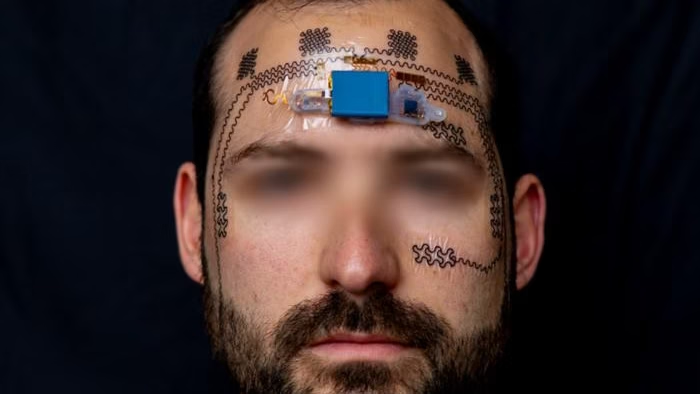Researchers at the University of Liège in Belgium reveal how habitual entrepreneurs’ enhanced grey matter in the left insula supports their cognitive flexibility.
From University of Liège 17/02/25 (first released 21/06/24)

In a recent study led by the University of Liège researchers delved into the intersection of the fields of entrepreneurship and neuroscience, looking specifically at the cognitive flexibility of habitual entrepreneurs – those who repeatedly launch new businesses – compared to less experienced entrepreneurs and managers.
Cognitive flexibility – the ability to adapt and shift from one concept or strategy to another – is crucial to entrepreneurial success.
Understanding the neural basis of this characteristic can provide valuable information for improving entrepreneurial training and education.
Recently published research suggests links between entrepreneurial behavior and brain structure, opening up new perspectives in the emerging field of neuro-entrepreneurship.
“Our study used a two-stage methodology,” explains Frédéric Ooms, Assistant Professor and first author of the study.
“First, we collected self-reported measures of cognitive flexibility from 727 participants, including entrepreneurs and managers.”
“Next, we performed structural magnetic resonance imaging (MRI) on a subset of these participants to explore differences in gray matter volume in the brain.”
“This multidisciplinary approach enabled us to correlate self-reported cognitive flexibility with actual brain structure.”
And what emerges first from the analyses is greater cognitive flexibility and brain differences between entrepreneurs and managers.
Habitual entrepreneurs show an increase in gray matter volume in the left insula compared to managers.
This brain region is associated with enhanced cognitive agility and divergent thinking, essential traits in entrepreneurship.
The study also links gray matter density in the left insula to cognitive flexibility, particularly divergent thinking.
“This finding suggests that the brains of habitual entrepreneurs are specially adapted to foster the cognitive flexibility needed to identify and exploit new opportunities,” explains Steven Laureys, neurologist at ULiège and Laval University.
This research has practical implications for educators and organizations.
By recognizing the importance of cognitive flexibility, educational programs can be designed to cultivate this characteristic in aspiring entrepreneurs.
Organizations can also benefit by fostering cognitive flexibility among managers, which could lead to more innovative and adaptive business strategies.
“This study is essential for entrepreneurship and neuroscience researchers, educators designing entrepreneurial training programs and business leaders wishing to foster innovation within their organizations,” resumes Bernard Surlemont, Professor of Entrepreneurship.
“By understanding the neural basis of cognitive flexibility, stakeholders can better support entrepreneurial success and adaptability.”
The discovery of distinct neural characteristics in habitual entrepreneurs not only advances our understanding of entrepreneurial cognition, but also opens up new avenues of research into how these brain structures develop and change in response to entrepreneurial activities.
Longitudinal studies are underway to explore whether these differences result from innate predispositions or the brain’s plastic response to entrepreneurial experiences.
This pioneering research highlights the importance of combining neuroscience with traditional entrepreneurship studies to gain a comprehensive understanding of what makes successful entrepreneurs distinct at the neurological level.
“As we continue to explore the role of the brain in entrepreneurship, this study represents an important advance in the field of neuro-entrepreneurship, concludes Frédéric Ooms.”
More info
You may also be curious about:
-

Oxford physicists recreate extreme quantum vacuum effects in simulation
-

Tiny device spins blood clots away
-

Skin bacteria help protect us from sunlight
-

New brain-reading video game reduces chronic nerve pain
-

Black tea and berries could contribute to healthier aging
-

Viral mouth-taping trend ‘sus’ says Canadian sleep expert
-

New sodium fuel cell could enable electric aviation
-

The most extreme solar storm hit Earth over 14,000 years ago, scientists identify
-

Electronic face tattoo gauges mental strain
-

Solitonic superfluorescence paves way for ambient temp quantum computing
-

Cosmic mystery deepens as astronomers find object flashing in both radio waves and X-rays
-

The rotors are also the wheels on this morphobot

Good day I am so delighted I found your webpage, I really found you by error, while I was browsing on Askjeeve for something else, Anyways I am here now and would just like to say thanks a lot for a fantastic post and a all round thrilling blog (I also love the theme/design), I don’t have time to read through it all at the minute but I have saved it and also added your RSS feeds, so when I have time I will be back to read a great deal more, Please do keep up the awesome work.
Very interesting details you have mentioned, regards for putting up. “She had an unequalled gift… of squeezing big mistakes into small opportunities.” by Henry James.
Heya i’m for the first time here. I came across this board and I find It truly useful & it helped me out much. I hope to give something back and help others like you aided me.
As I website possessor I believe the content material here is rattling great , appreciate it for your hard work. You should keep it up forever! Best of luck.
incrível este conteúdo. Gostei bastante. Aproveitem e vejam este conteúdo. informações, novidades e muito mais. Não deixem de acessar para aprender mais. Obrigado a todos e até mais. 🙂
Loving the info on this web site, you have done great job on the blog posts.